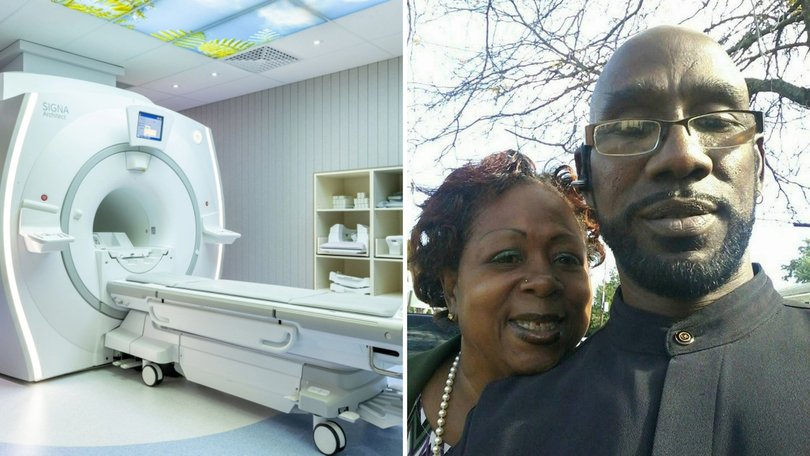Keith McAllister: Fatal mistake made moments before man died when he was ‘torpedoed’ into MRI machine
A devastating incident inside a private imaging facility is under review after a man died after being sucked into an MRI machine, circumstances medical experts are calling catastrophic.

The fatal mistake made moments before a man was sucked into an MRI machine and died has been revealed.
Keith McAllister’s wife has recalled the horror moment his metal necklace became a “torpedo” inside the imaging room while she was getting an MRI scan on her knee.
The 61-year-old New York man died after being dragged into an MRI machine by his own necklace, in a freak incident that has sparked questions over the safety protocols at the facility.
Sign up to The Nightly's newsletters.
Get the first look at the digital newspaper, curated daily stories and breaking headlines delivered to your inbox.
By continuing you agree to our Terms and Privacy Policy.Adrienne Jones-McAllister claims staff were aware of her husband’s necklace and led him into the room at Nassau Open MRI in Long Island on Wednesday afternoon, The Sun reported.
She had asked a technician to bring her husband in there to assist her in standing up after a knee scan.
As Mr McAllister approached, the machine’s powerful magnet caught hold of the heavy chain around his neck — described as weighing up to nearly 500grams — and pulled him off his feet.
“He went limp in my arms,” Ms Jones-McAllister explained.
“This is still pulsating in my brain.”
She said she shouted at staff to turn the machine off and call emergency services, but it was too late. Mr McAllister was rushed to the hospital with critical injuries and suffered multiple heart attacks before dying the next day.

The necklace, which Ms Jones-McAllister said her husband regularly wore for weight training, had been seen by staff before.
“That was not the first time that guy has seen that chain,” she said.
“They had a conversation about it before — casual comments like, ‘Ooooooh, that’s a big chain!’”
New York’s Department of Health is now reviewing the incident.
While MRI machines are known for their powerful magnetic fields, the department noted that MRI facilities in New York are not subject to routine inspections because they are not regulated as part of diagnostic and treatment centres.
Experts say the magnets are powerful enough to turn even small objects into dangerous projectiles.
“If this was a chain wrapped around the neck, I could imagine strangulation injuries, asphyxiation, cervical spine injuries,” said Dr Payal Sud of North Shore University Hospital.
Charles Winterfeldt, the hospital’s director of imaging services, said such a chain would effectively become a “torpedo” inside the machine.
MRI machines are never truly “off” and pose known risks to patients or bystanders with oxygen tanks, wheelchairs, or magnetic jewellery.
The tragedy has renewed calls for stricter safety measures and clearer regulations around who can access imaging suites and under what conditions.
